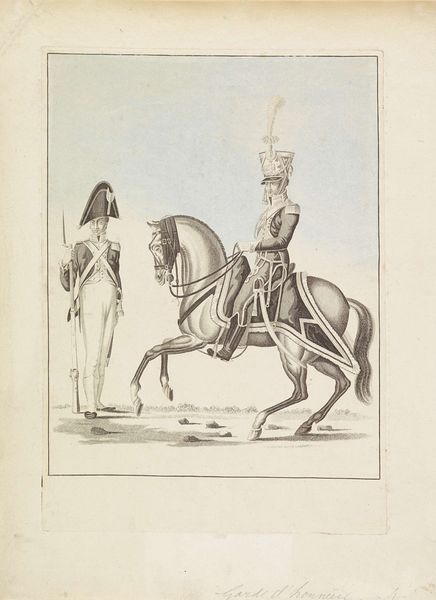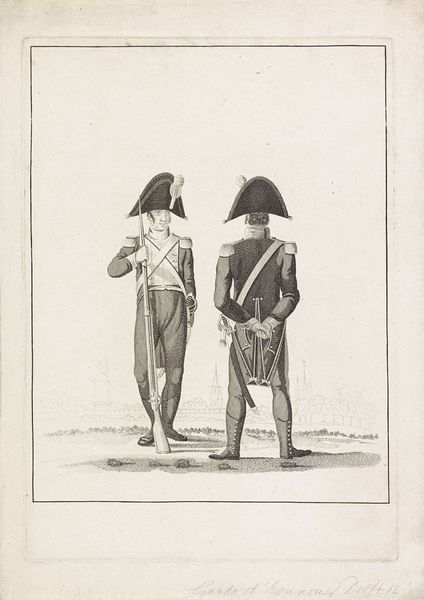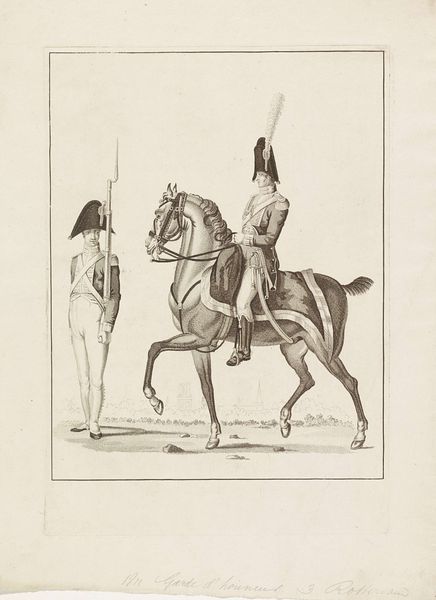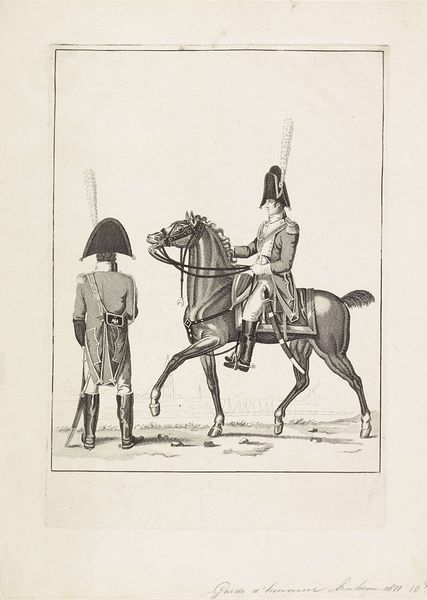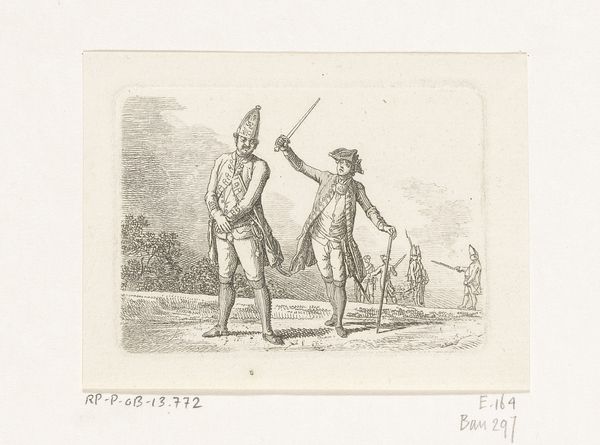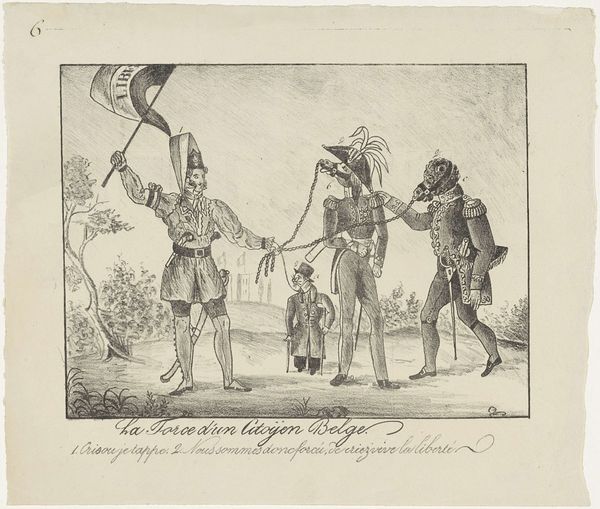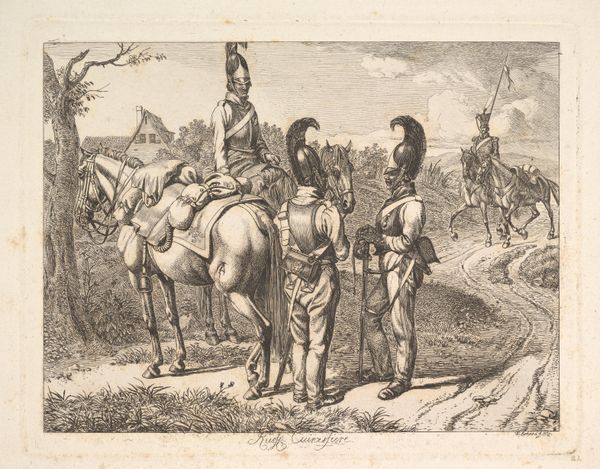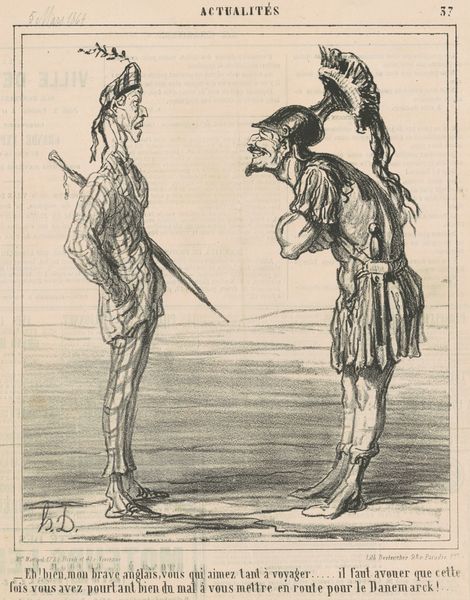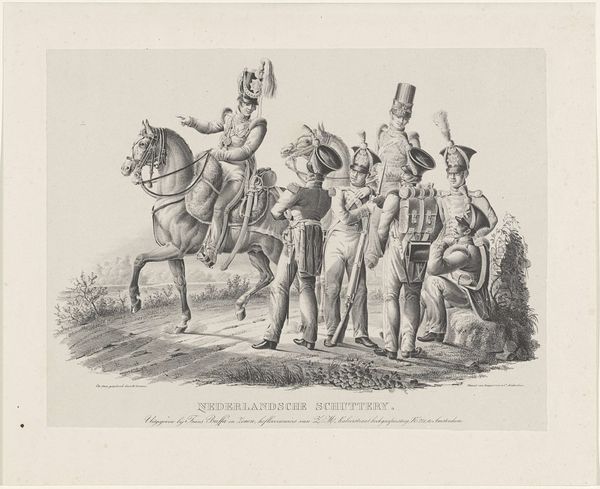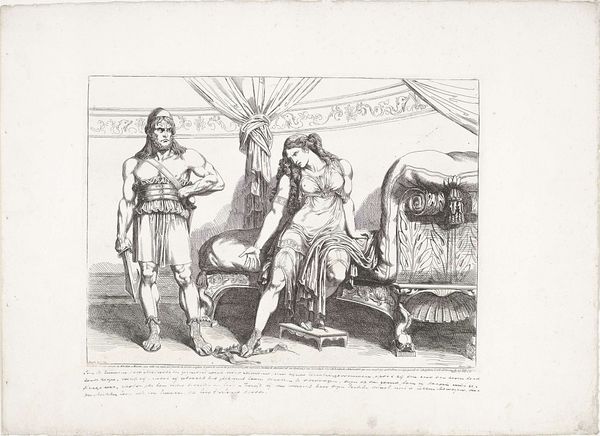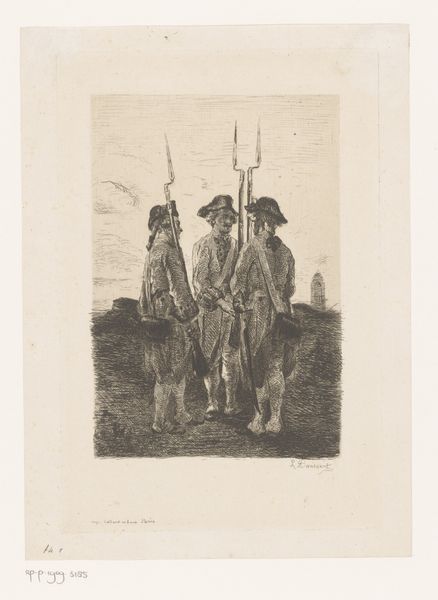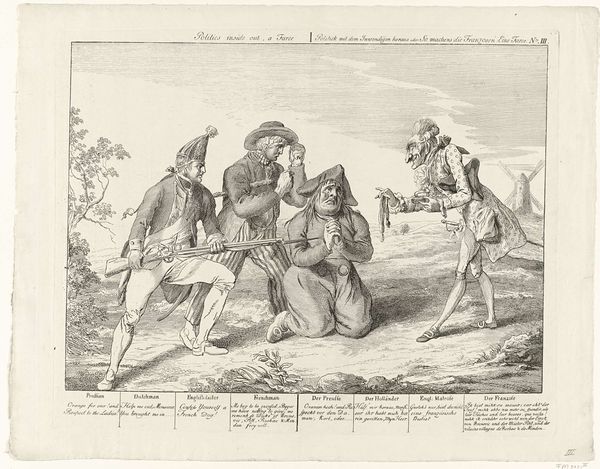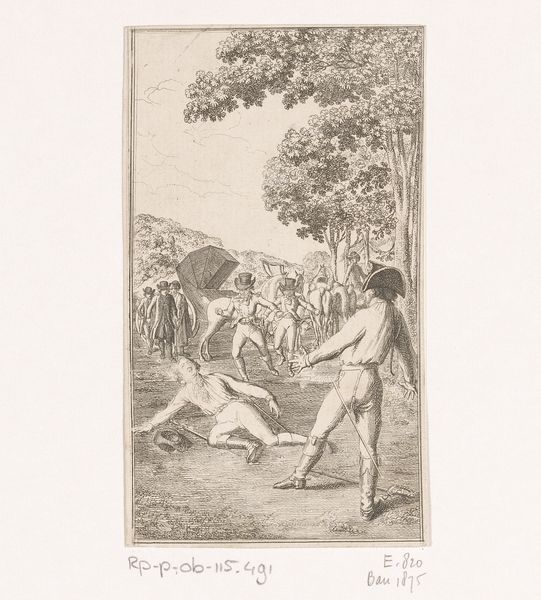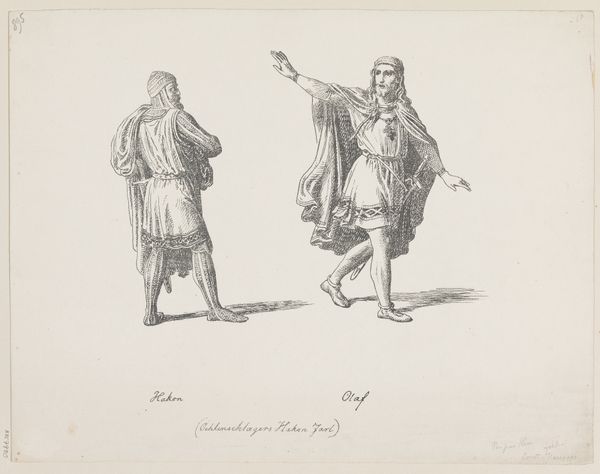
drawing, print, pencil
#
portrait
#
drawing
#
neoclacissism
#
light pencil work
# print
#
pencil sketch
#
pencil
#
pencil work
#
genre-painting
Dimensions: height 325 mm, width 230 mm
Copyright: Rijks Museum: Open Domain
This stipple engraving, "Erewacht te Leiden," was made in 1811 by an anonymous artist. The print medium itself, deployed to capture a moment of military life, has its own story to tell. Stipple engraving is an intaglio process, like traditional line engraving, but rather than incising continuous lines into a copper plate, the artist uses a tool to create tiny dots. When printed, these dots render tone and texture. The stipple method allowed printmakers to mimic the appearance of chalk or pastel drawings, opening printmaking to a wider range of aesthetic possibilities, and a larger market. The technique's rise coincided with the industrial revolution, when innovations in manufacturing and trade led to increased consumerism and a growing middle class eager to participate in visual culture. Stipple engraving offered a relatively efficient means of producing multiple images, democratizing access to art while documenting the social and political life of its era. Recognizing the importance of materials and context encourages us to reconsider traditional art hierarchies.
Comments
No comments
Be the first to comment and join the conversation on the ultimate creative platform.
